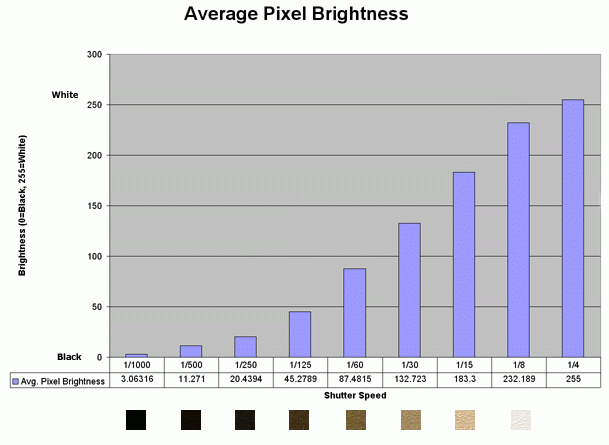Introduction
This page shows the results of my experiment to measure the "dynamic range" of the Nikon 990 camera. I conclude that the Nikon has a dynamic range of about 8 stops.Theory
The term "dynamic range" is often used to refer to how wide a range of light and dark a camera image can capture without loss of detail in either the shadows or highlights. When loss of detail occurs, either the shadows become completely black, the hightlights become completely white, or both. It is commonly acknowledged that slide film has a smaller dynamic range than print film, and that the human eye has a much wider dynamic range than any type of film. Perhaps because the technology is so new, and rapidly changing, there seems to be less agreement on the dynamic range of digital cameras.Methodology
I took several pictures of an evenly colored grey test subject (a floppy disk) using the Nikon 990. Next, I cropped a central 20x20 pixel portion of each image (to ensure that variation in illumination intensity would not alter the results). Lastly, I measured the average pixel brightness using Thumber's Noise Analysis Report feature. A black pixel has a value of 0, and a white pixel has a value of 255.Results
It appears that the Nikon 990 has a dynamic range of about 8 stops. A test picture with taken with a shutter speed of 1/1000 was almost completely black, and a picture with a shutter speed of 1/4 produced a completely white picture. The difference is 8 stops. The chart below summarizes the results. Each bar shows the average pixel brightness value at a different shutter speed. Below each bar is a cropped version of the sample picture.
References
My gallery of blended, high-dynamic range imagesJeremy McCreary's discussion of dynamic range
Phil Askey's discussion about measuring dynamic range
Peter Inova's technique for increasing dynamic range
Send any comments or questions to Max Lyons (maxlyons@tawbaware.com)